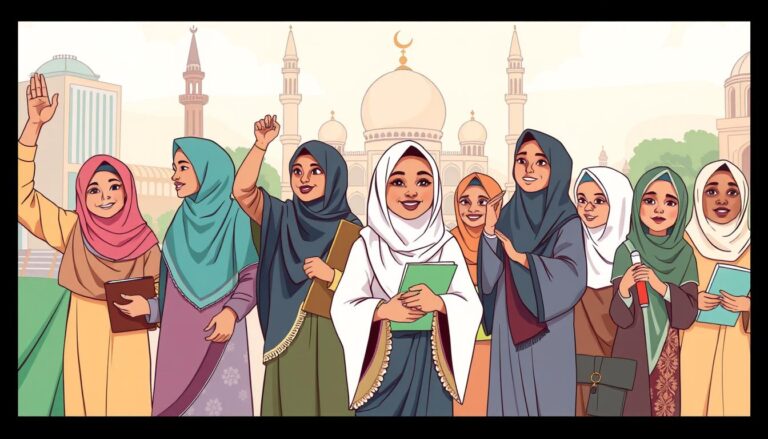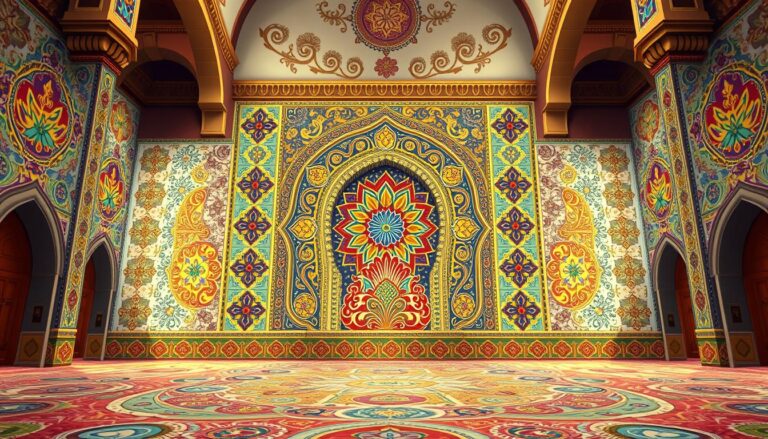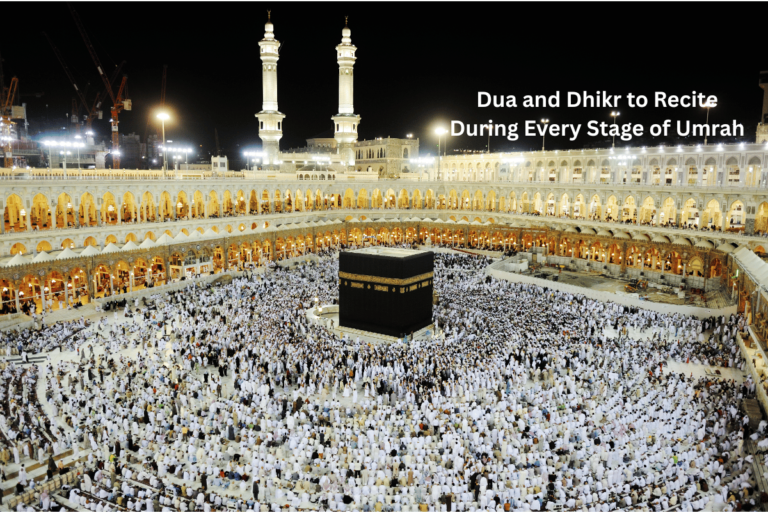5 Sacred Islamic Rituals and Their Meanings
Have you ever wondered about the sacred rituals of Islam? These rituals shape the daily lives of millions. They are deeply rooted in tradition and support the Muslim faith.
Islam is centered around the Quran and Prophet Muhammad’s teachings. It guides followers through five fundamental pillars. These rituals are the backbone of Muslim life, from daily prayers to annual observances.
The call to prayer echoes from minarets in Turkey, Saudi Arabia, and India. Millions gather in Mecca for Hajj. These rituals unite Muslims worldwide, strengthening faith and community bonds.
Key Takeaways
- Islam is guided by five fundamental pillars that shape Muslim life
- Daily prayers (Salat) occur five times a day at specific times
- Zakat involves giving 2.5% of one’s wealth to those in need
- Ramadan fasting culminates in the joyous celebration of Eid al-Fitr
- Hajj, the pilgrimage to Mecca, is a once-in-a-lifetime duty for able Muslims
- Islamic rituals foster both personal spirituality and community bonds
Introduction to Islamic Rituals and Their Significance
Islamic rituals are key to Muslim life, guiding them every day. They include prayer, fasting, charity, and pilgrimage. These acts connect Muslims to their faith and each other.
The Five Pillars of Islam are the basics of Muslim life. They are the Shahada, daily prayers, charity, fasting in Ramadan, and pilgrimage to Mecca. These pillars bring Muslims together, creating a sense of unity.
But there’s more to Islamic rituals than the Five Pillars. Sunni Muslims, who are about 90% of the world’s Muslims, follow these main practices. Shiite Muslims, found in places like Iran and Iraq, also have special rituals like khums, where they give a part of their extra money to religious leaders.
“Islam is not just a religion; it’s a way of life. Our rituals remind us of our purpose and keep us connected to our faith.”
The spiritual value of Islamic rituals is huge. They remind Muslims of their commitment to Allah, teaching them discipline and mindfulness. Through these acts, Muslims aim to clean their hearts, strengthen their faith, and get closer to Allah.
- Salat (prayer) occurs five times daily, aligning believers with the divine
- Zakat (charity) promotes social justice and compassion
- Sawm (fasting) teaches self-control and empathy
- Hajj (pilgrimage) unites Muslims from diverse backgrounds
As Islam grows around the world, these rituals stay at the heart of Muslim identity. They help with spiritual growth, building community, and personal development. This ensures Islamic traditions keep going from one generation to the next.
The Five Pillars of Islam: Foundation of Islamic Faith
The Pillars of Islam are the heart of Muslim life. These five key practices, known as Arkān al-Islām al-khamsah in Arabic, are a must for all Muslims. They include saying the Muslim creed, praying five times a day, giving to charity, fasting in Ramadan, and making a pilgrimage to Mecca if possible.
Understanding the Concept of Arkān al-Islām al-khamsah
Arkān al-Islām al-khamsah includes five main practices:
- Shahādah: The Muslim creed
- Salat: Prayer five times daily
- Zakat: Charity to the poor
- Sawm: Fasting during Ramadan
- Hajj: Pilgrimage to Mecca
These pillars are based on the Quran and explained in Hadith literature. This literature contains the sayings and actions of Prophet Muhammad.
How the Five Pillars Guide Muslim Life
The Five Pillars guide Muslim life in many ways. They shape daily routines, strengthen community bonds, and encourage spiritual growth. For example, Salat requires Muslims to pray five times a day, facing Mecca. This practice teaches discipline and keeps Muslims connected to God.
The Importance of Intention (Niyyah) in Islamic Practices
Niyyah, or intention, is key in Islamic practices. It makes sure actions are done with true sincerity. When doing any of the Five Pillars, Muslims should set their intention. This makes each act a dedicated act of devotion to Allah.
“The deeds are considered by the intentions, and a person will get the reward according to his intention.”
Shahādah: The Declaration of Faith
The Shahādah is the heart of Islamic belief. It’s the first pillar of Islam, holding the religion’s core principles. The statement, “There is no deity except God, and Muhammad is the Messenger of God,” is at the heart of a Muslim’s faith.
In Sunni Islam, the Shahādah has two parts. Shia Islam adds a third part about Ali. The Quran mentions this declaration about 30 times. It highlights God’s oneness and Muhammad’s role as a prophet.
The Shahādah is key in Islamic practices:
- It’s essential in all daily prayers
- It’s a central step in converting to Islam
- It’s part of the Adhan (call to prayer)
- It features in Islamic architecture globally
The Shahādah’s role is also seen in Sufi ceremonies. It’s often repeated in different ways. Since the late seventh century, it’s been on coins and in monumental architecture. By saying this, Muslims connect with their faith and join a worldwide community.
Salat: The Ritual of Daily Prayer
Salat, the Islamic prayer, is a key part of Muslim faith. It connects believers to Allah five times a day. Prayer times guide the faithful, helping them stay devoted and reflective.
The Five Daily Prayer Times
Muslims pray five times: Fajr before dawn, Dhuhr at noon, Asr in late afternoon, Maghrib after sunset, and Isha before bed. The adhan, a beautiful call to prayer, comes from mosques. It invites everyone to worship.
Preparation for Prayer: Wudu and Purification
Before Salat, Muslims do Wudu, a cleansing ritual. They wash their hands, mouth, nose, face, arms, and feet. This prepares them to connect with Allah.
The Structure and Components of Salat
Salat has a set structure. Muslims face Mecca and recite prayers in Arabic. They also do Rak’ha, which includes standing, bowing, kneeling, and prostrating. Each action shows their respect and submission to Allah.
“Prayer is the pillar of religion.” – Prophet Muhammad
Salat brings Muslims together worldwide. It helps them grow spiritually, stay disciplined, and feel part of a global community. Through Salat, Muslims strengthen their faith and seek guidance every day.
Zakat: The Practice of Almsgiving
Zakat is the third pillar of Islam and a key part of Islamic charity. It requires Muslims to give 2.5% of their wealth to those in need. This is not just a suggestion; it’s a religious duty for those who can afford it.
Zakat is more than just giving money. It’s a way to clean wealth and fight for social justice. Muslims who have enough wealth, known as nisab, must pay Zakat.
It’s estimated that Muslims worldwide give between $200 billion and $1 trillion each year through Zakat and charity. This huge amount of money helps the poor in Muslim communities all over the world.
“Zakat is next in importance after prayer in Islam.”
In countries like Saudi Arabia, Pakistan, and Malaysia, Zakat is not just a choice. It’s the law. Not paying Zakat is seen as tax evasion. But for Shia Muslims, Zakat is a private act.
The Quran says Zakat is crucial for salvation. It tells us how to use Zakat money, like helping the poor and needy. Zakat also helps travelers, frees captives, and pays off debts. This way, Islam has a system to support the community and share wealth.
Sawm: Fasting During Ramadan
Sawm is the fourth pillar of Islam. It involves fasting from dawn to sunset. This happens in the ninth month of the Muslim calendar, usually 29 to 30 days. In 2024, Ramadan is from March 10 to April 9.
The Spiritual and Physical Aspects of Fasting
During Sawm, Muslims don’t eat, drink, or meet physical needs. It helps grow spiritually, builds self-discipline, and shows empathy for the poor. Fasting times change, with early Ramadan 2024 from 5:46 a.m. to 6:48 p.m.
Iftar and Suhoor: Breaking and Beginning the Fast
Muslims end their fast at sunset with Iftar, often with dates. Suhoor, eaten before dawn, starts the fast. These meals bring families and friends together, strengthening bonds.
Exemptions and Alternatives to Fasting
Certain groups don’t have to fast during Ramadan, including:
- Ill individuals
- Travelers
- Pregnant or nursing women
- Those with medical conditions that fasting may harm
In emergencies, Muslims can stop fasting to stay healthy. They can also feed the poor or make up missed days later.
“Fasting is prescribed for you as it was prescribed for those before you, that you may attain taqwa (God-consciousness).” – Quran 2:183
Hajj: The Pilgrimage to Mecca
Hajj is the fifth pillar of Islam. It takes place in Mecca, Saudi Arabia. Every Muslim who can must go to Hajj at least once.
The rituals of Hajj last six days. Pilgrims circle the Kaaba seven times, called tawaf. They also run between Safa and Marwa hills, known as sai.
Another important act is throwing pebbles at three large pillars. This shows rejecting temptation.
Hajj attendance has changed in recent years:
- 2019: 2,489,406 pilgrims
- 2020: 10,000 pilgrims (due to COVID-19)
- 2021: 58,700 pilgrims
- 2023: Expected 2.5 million pilgrims
On the Day of Arafat, pilgrims gather. Many fast on this day. The Hajj ends with Eid al-Adha, a festival.
Hajj is more than a journey; it’s a spiritual transformation that unites Muslims worldwide.
For true believers, a proper Hajj erases sins. This experience connects Muslims to their faith and each other in a special way.
5 Sacred Islamic Rituals and Their Meanings
Islamic rituals are key to the Muslim faith. They connect believers to their spiritual roots. They also bring unity to the Muslim community. Let’s dive into the meanings and history behind these rituals.
The Spiritual Significance of Each Ritual
Each Islamic ritual holds deep spiritual value. The shahādah declares a Muslim’s faith in Allah. Salat, the five daily prayers, connects us to the divine.
Zakat cleanses wealth and helps others. Sawm, fasting in Ramadan, teaches self-control and compassion. The hajj pilgrimage to Mecca shows unity and equality among believers.
Connecting Muslims to Faith and Community
Islamic rituals are powerful for building the Muslim community. Friday prayers unite believers weekly. Ramadan’s fast ends with Eid al-Fitr, a three-day celebration.
The hajj brings millions of Muslims together. It shows the faith’s global nature.
Historical Context of Islamic Rituals
Many Islamic rituals have roots in Islamic history. The Prophet Muhammad’s journey from Mecca to Jerusalem is celebrated. Maulid al-Nabi honors the Prophet’s birth, linking today’s Muslims to their spiritual past.
“The rituals of Islam are not mere actions, but gateways to spiritual growth and community bonding.”
Additional Islamic Devotional Practices
Islamic devotion goes beyond the Five Pillars. It includes many spiritual practices that deepen a Muslim’s bond with Allah. These acts also strengthen their faith. Let’s look at some of these meaningful practices.
Dhikr, or remembering Allah, is key in Islamic devotion. It involves saying Allah’s names or short Quran phrases. Many use prayer beads, called Subhah, to keep track of their recitations. This helps them stay focused on Allah’s presence all day.
Quran recitation is dear to Muslim hearts. Reading and listening to the Quran helps grow spiritually and understand it better. Muslims often come together for group recitations. This builds a sense of community and shared devotion.
Dua, or prayer, is also crucial. Muslims pray to Allah for guidance, forgiveness, and blessings. These personal prayers happen all day, making their bond with Allah stronger.
- Weekly congregational prayers (Salat al-Jumu’ah) on Fridays
- Voluntary night prayers during Ramadan
- Charitable acts beyond the obligatory Zakat
These practices add richness to Muslim life. They remind believers of Allah’s presence and their purpose. Through these acts, Muslims find peace, guidance, and a closer connection to their faith.
Conclusion: The Impact of Islamic Rituals on Muslim Life and Identity
Islamic rituals are key to the Muslim lifestyle and spiritual growth. They have shaped Islamic identity since Prophet Muhammad’s birth in 570 A.D. The five pillars of Islam guide believers, connecting them to Allah and the Muslim community.
Islam spread far, adapting to different cultures but keeping its core values. This allowed Islamic teachings to reach people from the Atlantic to China’s steppes. Now, about fifty countries have Muslim majorities, with many others having significant Muslim minorities.
The Qur’an and hadith texts see health as a divine gift. They encourage Muslims to care for their well-being. This focus on health, along with spiritual rituals, helps Muslims live balanced lives. Organizations like ING have been educating about Muslims and Islam for over twenty years, promoting understanding and dialogue.
In short, Islamic rituals are vital for Muslim identity and daily life. They offer a path for spiritual and moral growth, uniting believers. As Islam grows in the modern world, these practices continue to guide and inspire Muslims everywhere.
Source Links
- Cultural Atlas
- What do Muslims believe and do? Understanding the 5 pillars of Islam
- The Five Pillars Of Islam
- Islam ‑ Five Pillars, Nation of Islam & Definition | HISTORY
- Islamic Practices
- Five Pillars of Islam
- The Five Pillars of Islam in the Hadith
- Shahada
- Islām, Īmān, Iḥsān: Climbing the Spiritual Mountain | Yaqeen Institute for Islamic Research
- 5 Muslim Daily Prayer Times and What They Mean
- Islam – Prayer, Salat, Rituals | Britannica
- Zakat: The Basic Rules for One of the Five Pillars of Islam
- The Five Pillars | Survey of World Religions
- Zakat
- Ramadan
- Ramadan | Fasting, Traditions, & Facts | Britannica
- The Hajj ‑ Definition, Facts & Rituals | HISTORY
- Hajj
- What is Hajj? A step-by-step guide to the Muslim pilgrimage
- Holy Days, Festivals and Rituals – Diversiton
- The Five Pillars | World Religions
- Rites And Ceremonies
- Islam
- 8341.text.qxd
- Answers to Frequently Asked Questions About Islam – ING







